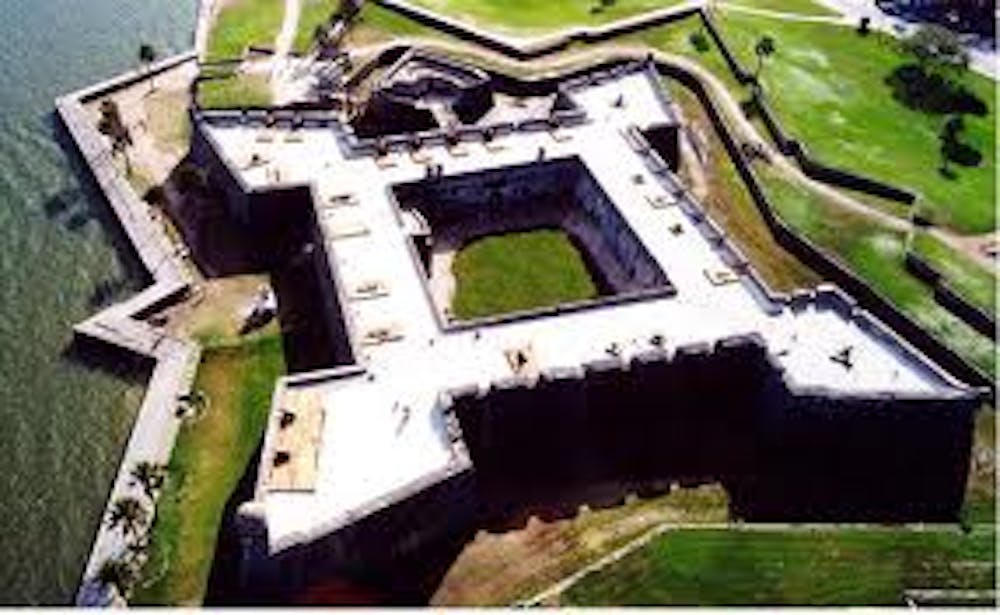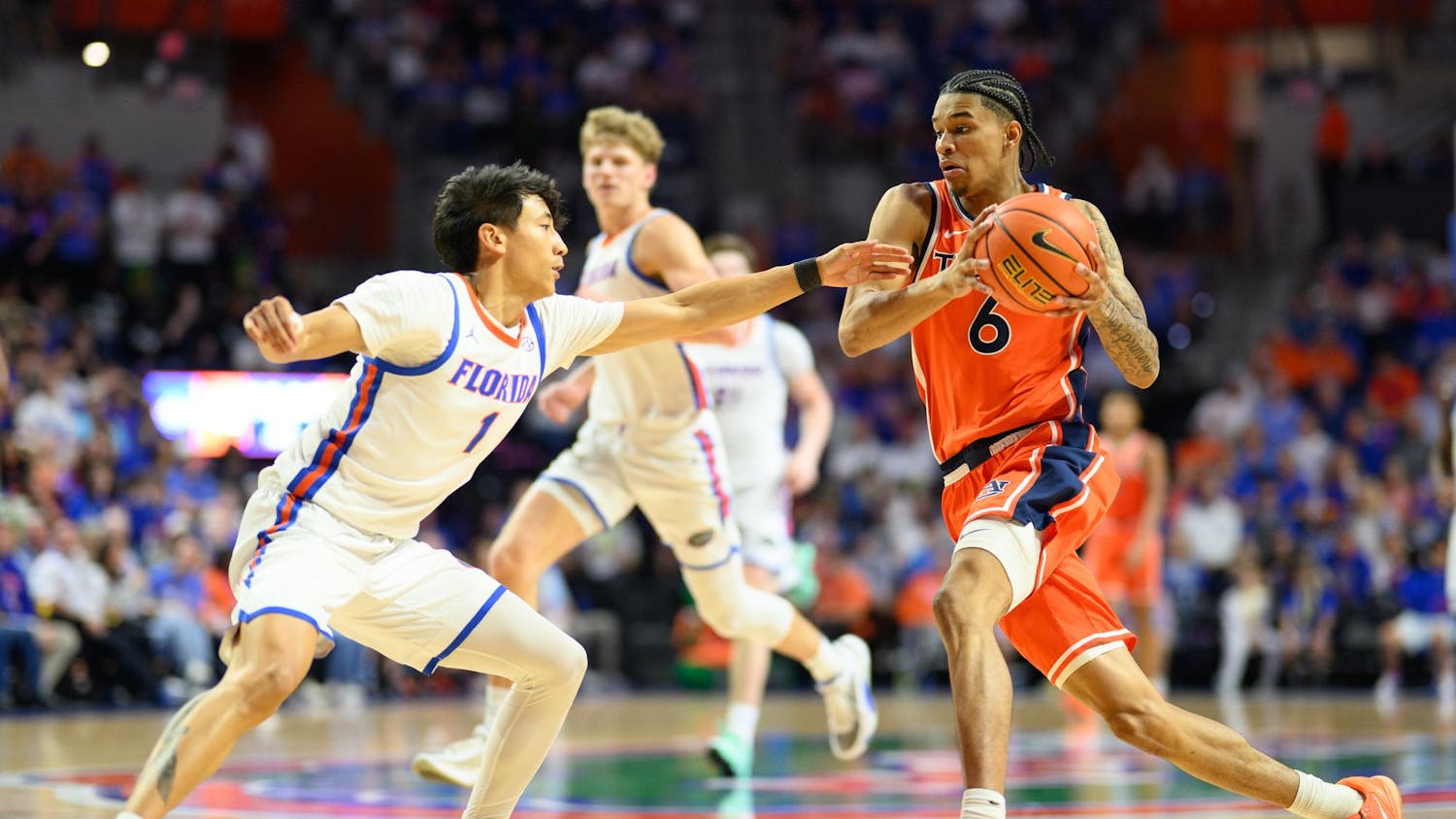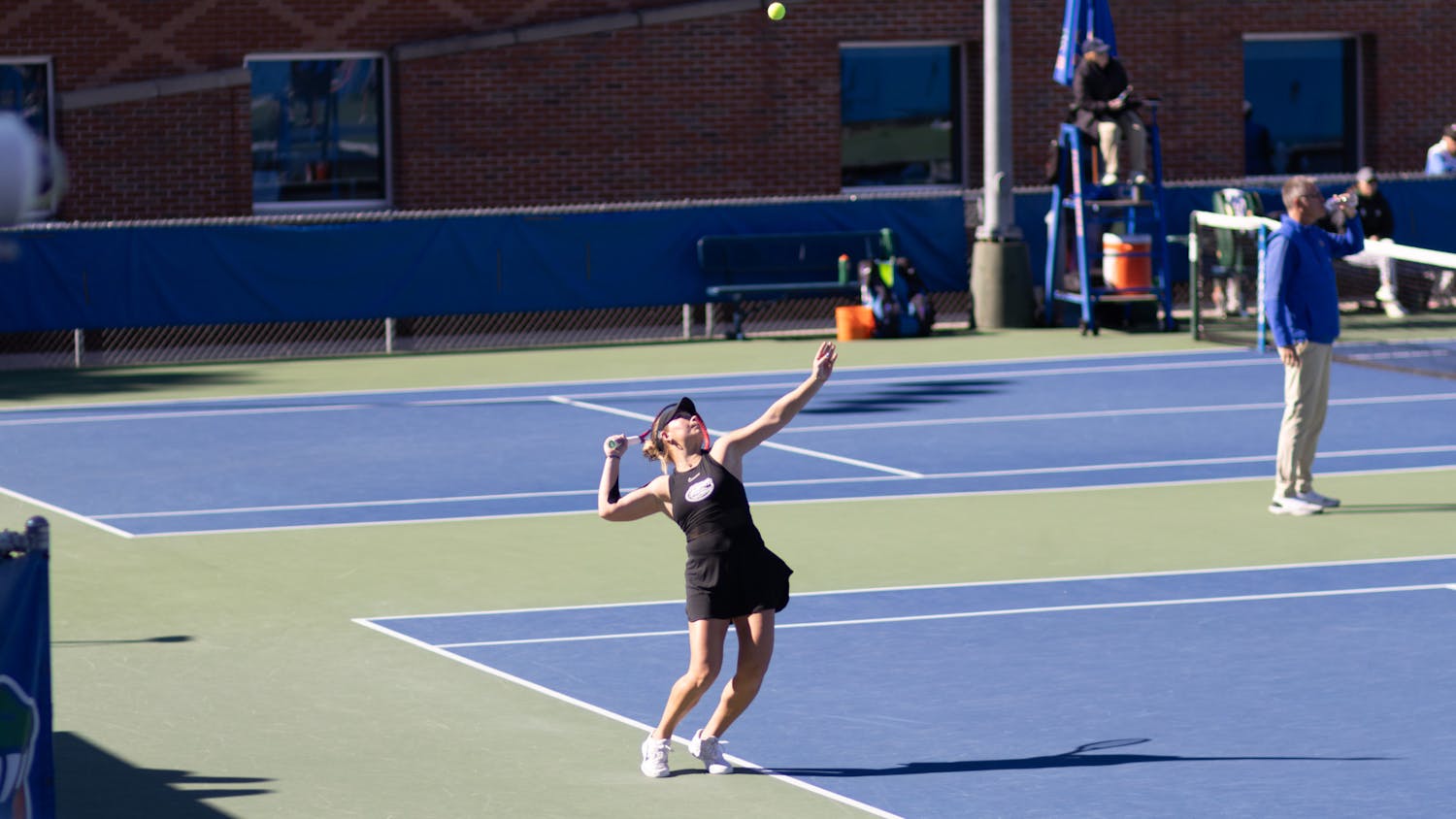St. Augustine is the oldest city in the United States. Today, its future is in danger.
The UF Whitney Science Laboratory for Marine Bioscience kicked off its Spring “Evenings at Whitney” lecture series Thursday with a discussion titled “Exploring Coastal Heritage Through Research and Pedagogy.”
Cleary Larkin and Sujin Kim, leaders in the UF Historic Preservation Program (HPP), spoke to audience members about the importance of historic preservation and the work in the local HPP chapter: the Preservation Institute of St. Augustine (PISA).
“One of the things I love the most,” Larkin explained to the crowd gathered in the Whitney Auditorium, “is the real interdisplinariamism you find within this practice.”
PISA prepares the next generation of leaders to preserve history through architecture. To do so, the group uses a combination of cutting-edge technology – like 3D laser printing – and traditional onsite examinations.
In 2007, Florida granted management of 38 historic St. Augustine structures to UF management. UF responded by developing a strategic plan to support historic preservation of these structures.
In 2017, PISA was founded with the initial purpose of working with the city to preserve those 38 buildings. This largely means developing historic structure reports — a process that includes looking at historic drawings, taking 3D laser scans, and making onsite observations of every structure. PISA workers use these reports to create an appropriate treatment approach and recommendation for each building.
PISA also works with St. Augustine to promote local historical preservation in other areas — such as in response to climate change.
One of the organization’s completed projects was a 2021 study on pre-1821 coquina buildings. Coquina is a material indigenous to the Florida coast that was used by early St. Augustine residents as a building material, making it a vital aspect of the city’s history.
Architects, historians, and crafts and trades people alike came together to understand the impact of sea level rise and salt level intrusion on the material.
But the dangers of sea level rise as a result of climate change are not limited to coquina stone.
Kim closed his portion of the presentation by showing the audience images of familiar St. Augustine city blocks, manipulated to show what they will look like in 2070 and 2080 when rising water levels lead to widespread flooding.
“The problem is that the change is slow and gradual,” Kim said. “But once it comes here, it’s permanent.”
Sea level rise is an imminent problem for St. Augustine, Kim said, but outreach stemming
from organizations like PISA can help the public understand the devastating potential of climate change on a local level, incentivizing people to take action.
“The word ‘preservation’ means to preserve something in perpetuity,” Larkin said. “Right now, we are losing structures and we are losing historic resources.”
She feels this can be combated by collecting data from techniques such as laser scanning and by working with community building owners in addition to local, state and federal governments.
“We have the ability to finally be proactive about this and make decisions about what’s important,” she said.
Contact Zoey at zthomas@alligator.org.

Zoey Thomas is a UF media production senior and the Spring 2026 editor-in-chief of The Alligator. She has previously been data editor and engagement managing editor, as well as a reporter for three semesters. She was also a intern at the Orlando Sentinel. In her sparse free time, Zoey enjoys reading a good book, going for a run or waking up her roommates with the sound of her espresso machine.






